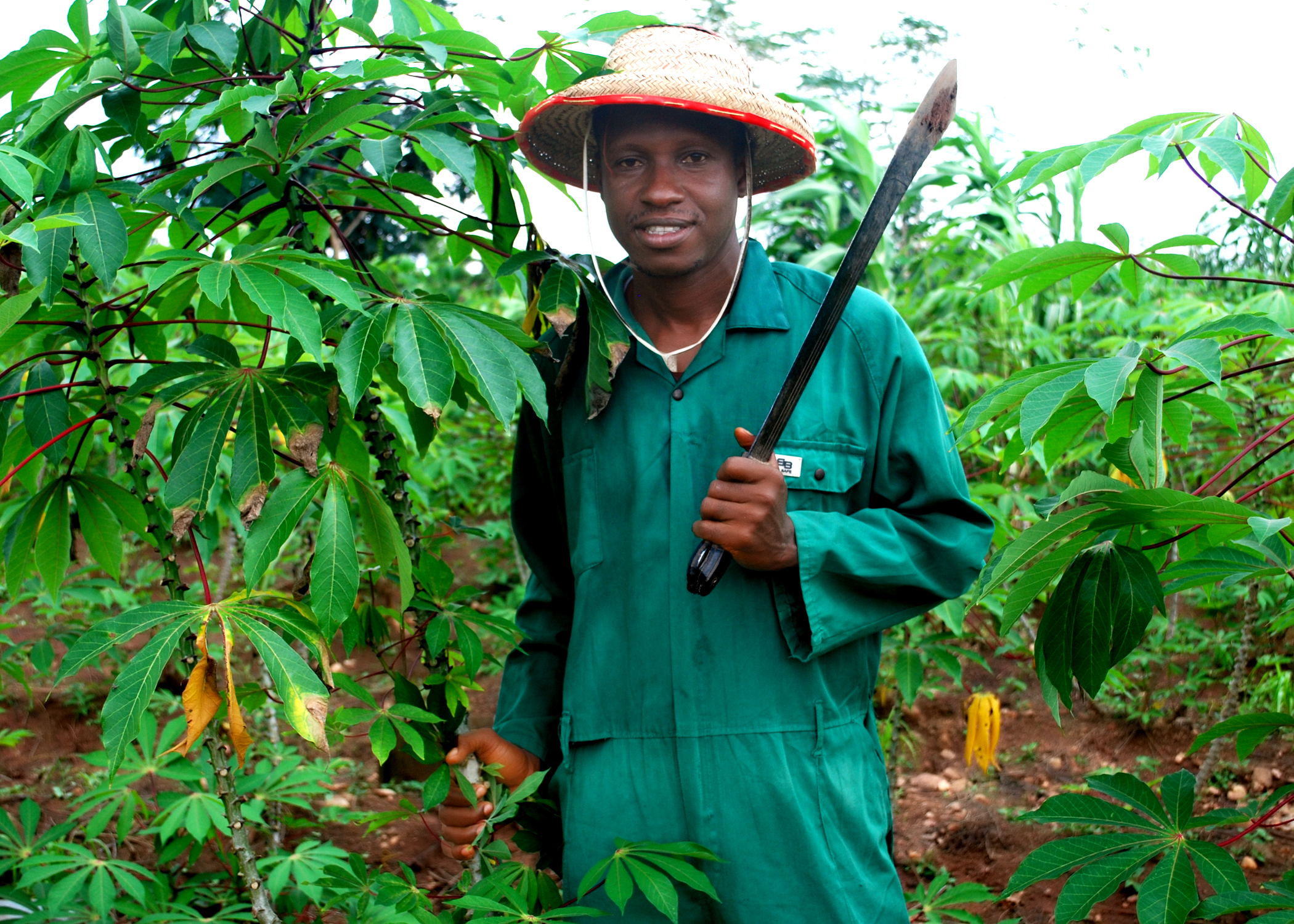It's essential to approach the topic of cassava and diabetes with a balanced perspective, acknowledging both potential benefits and necessary precautions. Cassava, a staple food in many parts of the world, has garnered attention regarding its potential impact on diabetes management. At the same time, it offers certain nutritional benefits, and individuals with diabetes must understand how to consume it safely. Understanding Cassava's...
Cassava, a root crop abundant in Nigeria, holds immense potential for bolstering both food security and industrial development. Its resilience, versatility, and high yield make it a cornerstone of the nation's agricultural sector. 1.Boosting Food Security: a. Drought Resistance: Cassava's ability to thrive in poor soils and withstand drought makes it a reliable food source, particularly in regions prone to climate variability. This is crucial...
Producing Ayosifam Garri involves careful processing to reduce cyanide levels and ensure a safe, palatable product. Here's a breakdown of how we produce it: Understanding Cyanide in Cassava The presence of cyanogenic glucosides: Cassava roots naturally contain cyanogenic glucosides, primarily linamarin and lotaustralin, which can release hydrogen cyanide (HCN) when broken down. Different cassava varieties have varying levels of...
The allure of the city, with its promise of jobs and a perceived better life, pulls many from their rural homes. However, for those living in areas blessed with fertile land, especially those suitable for cassava cultivation, the reality of urban migration often falls short of expectations. Instead of chasing a meagre city salary, perhaps the true wealth lies beneath their feet, waiting to be unearthed through the humble cassava. The...
Cassava, a staple food crop in many tropical regions, is gaining increasing attention as a versatile and sustainable resource for a variety of products. With its high starch content and adaptability to different climates, cassava offers exciting opportunities for entrepreneurs looking to build a green and profitable business. Why Cassava Processing is a Green Business Cassava processing can be considered a green business for several reasons:...
Cassava is a vital crop in Nigeria, contributing significantly to food security and livelihoods. However, post-harvest losses due to spoilage and inefficient processing methods pose a significant challenge. Integrating renewable energy solutions into cassava processing offers a transformative approach, reducing losses, creating jobs, and boosting income for processors and communities. The Challenge: Post-Harvest Losses and Inefficient...
Cassava (Manihot esculenta Crantz) is a vital staple food crop for millions of people across the tropics and subtropics, particularly in Africa, Asia, and Latin America. Its starchy roots are a primary source of carbohydrates, providing sustenance and contributing to food security. Numerous cassava varieties exist, each with unique characteristics suited to different growing conditions, end-use applications, and consumer preferences. This...
In a bid to boost agricultural productivity and support smallholder women farmers, Ayosifam Integrated Service Limited, in partnership with the Kwara State Agricultural Development Project (ADP), has empowered 10 selected women farmers from Moro and Ilorin South local government areas with extension services, inputs, training, and online market access. Speaking at the project inauguration in Ilorin on Monday, Funmilayo Esther Famuyiwa,...

China’s modernization started in 1978 under its leader, Deng Xiaoping. The keys to his approach were: 1. Maintain political stability at all costs; 2. Focus on the grassroots, bottom-up reforms (starting in agriculture instead of in the financial sector); 3. Promote rural industries despite their primitive technologies; 4. Produce manufactured goods (instead of only natural resources); 5. Provide enormous government support for infrastructure...

